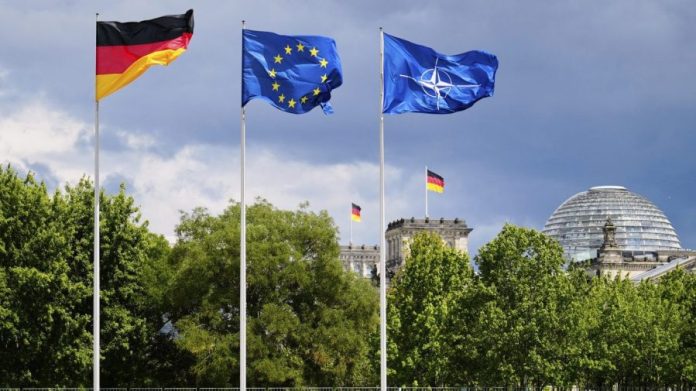
The international order is evolving quickly, with new cooperation mechanisms replacing inferior multilateral frameworks. One major trend has been the “minilateralization” of multilateralism, whereby nimble “coalitions of the willing” are being formed to deal with specific issues.
This trend raises serious questions for longstanding multilateral institutions, such NATO and the EU, in the domain of defense and security.
Minilateralism is about coalitions of states with like-minded goals. Instead of the traditional multilateralist approach, which strives for inclusiveness and building consensus across a large number of nations, minilateralism focuses on quick decision-making. This tactic is especially useful in large gatherings where conversation may become stale or in times of emergency when action is needed quickly.
Whereas minilateralism can improve collaboration on sensitive matters, it tends to give rise to worries about multilateral systems being splintered. A bias towards minilateral arrangements is also likely to lead to smaller, topic-specific coalitions which could destabilize the larger institutions that operate on the principles of collective security and mutual aid.
NATO has served as the bedrock of transatlantic security since 1949, holding that an attack against one is an attack against all, as stated in the alliance’s collective defense clause. Yet minilateralism is the new enemy of this principle. Recent years have witnessed a proliferation of minilateral military arrangements, ranging from the Quad (comprising Australia, India, Japan and the U.S.) to AUKUS (entailing Australia, the U.K. and the U.S.), which focus on particular regional security challenges that NATO is ill-suited to mitigate, such as China in the Indo-Pacific.
In Europe, the trend toward minilateralism could further splinter NATO. With member nations striking out on their own to create separate pacts, NATO risks turning into a two-tier alliance, with some nations forming closer coalitions at the expense of shared solidarity. Should minilateral alliances become more popular among its members than NATO’s obligatory commitments, the alliance’s cohesion could be threatened.
The idea of a “two-speed” NATO is already prompting serious consideration about collective security and whether the alliance will be capable of adequately dealing with new threats. States seem inclined to form minilateral arrangements that give them the security they need, often at the expense of NATO’s collective decision-making.
The political and economic integration of the EU has also been obstructed by a minilateralist push in the defense arena, encouraged by Common Security and Defense Policy. With the emergence of minilateral military interventions, the EU’s role as a global actor and its aim to act collectively is under threat. The European Intervention Initiative, for example, designed to improve military collaboration between a specific few EU member states — including France, Germany and the Netherlands — threatens to create parallel structures that could undermine current EU machinery. While member states seek minilateral defense “solutions,” the EU’s joint defense capabilities increasingly fall under threat, and the EU withers away as a player able to confront new security challenges.
Minilateralism may give rise to an elitist perception and thus will marginalize the non-participating EU member states. This disharmony creates a split within the EU as some member states might feel left out of important security talks. This divisiveness further complicates the EU’s attempts to speak with one voice on the global stage and undermines its global standing. If member states can choose from smaller groupings, as opposed to full EU participation, it is more difficult to assure their commitment to common security and defense.
Minilateralism has also eaten into the normative underpinning of classical multilateralism. Institutions such as NATO and the EU are, by their very nature, based on inclusivity, pooled decision-making and collective burden-sharing. But minilateral agreements can be a win for the few at the expense of the many, and undermine prospects for the sustainability of wider multilateral arrangements. This move could result in a reduction of respect for international norms, with states seeking to address more immediate threats to security rather than common interests. If we lose that shared commitment, nations may be more inclined to act unilaterally or in a confrontational manner, irrespective of established international rules.
Because of the fragile state of the international order, we should look for the risks that minilateralism poses to traditional multilateral institutions. For as much as minilateral coalitions may provide nimble answers to certain types of security problems, they may also weaken the coherence and efficiency of organizations already in place. NATO and the EU will need to recognize minilateralism as a fact of life and figure out how to help traditional multilateral constructs interact with nascent minilateral bodies.
In the end, a combination of minilateralism and the protection of traditional multilateral norms will determine the future of international security. Not only do we need a response to the immediate insecurities, but we also need to defend the multilateral system that has been the bedrock of global peace and cooperation for many decades. NATO and the EU need to both transform themselves and retain what they stand for in order to serve as the cornerstones of our collective security in an uncertain world.
Andrew Latham is a professor of international relations at Macalester College in Saint Paul, Minn., a senior fellow at the Institute for Peace and Diplomacy, and a non-resident fellow at Defense Priorities in Washington.

